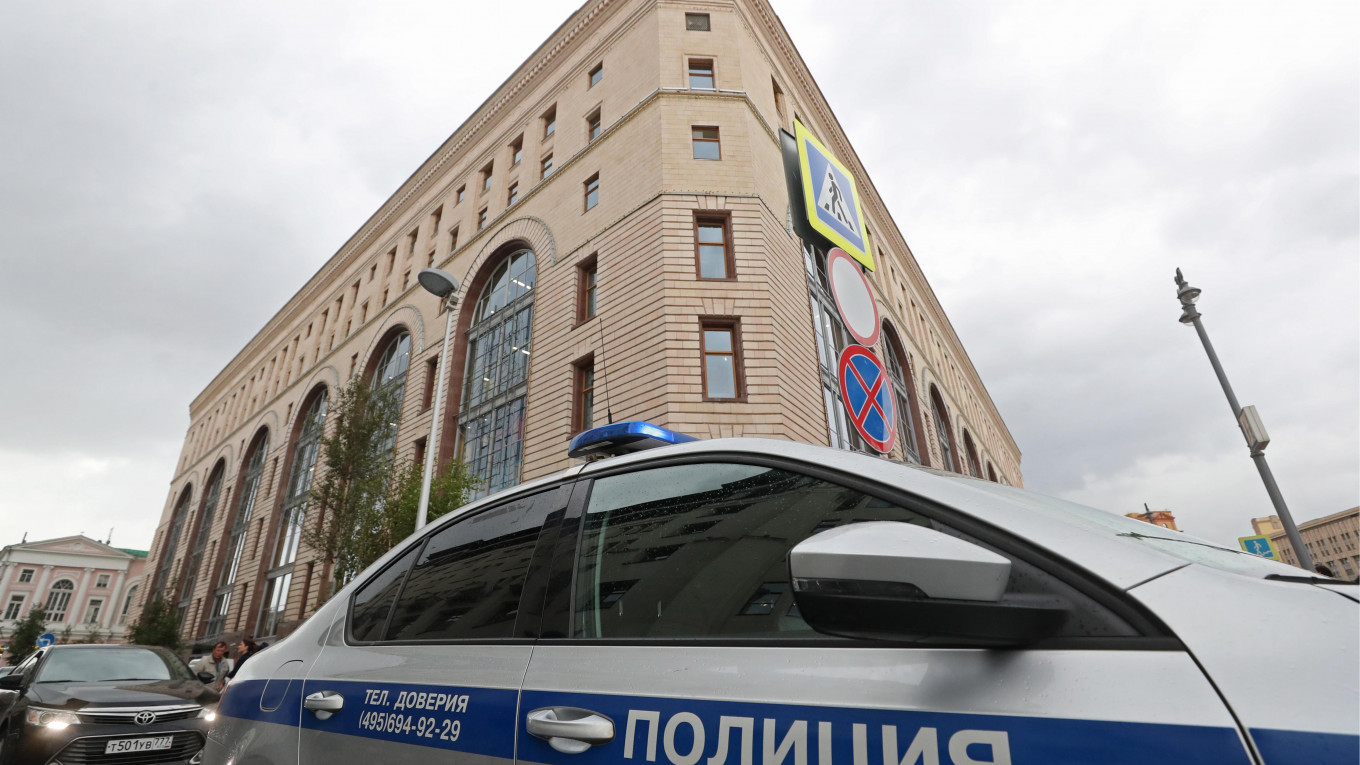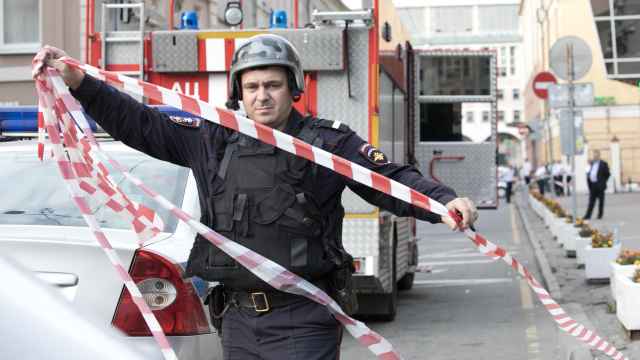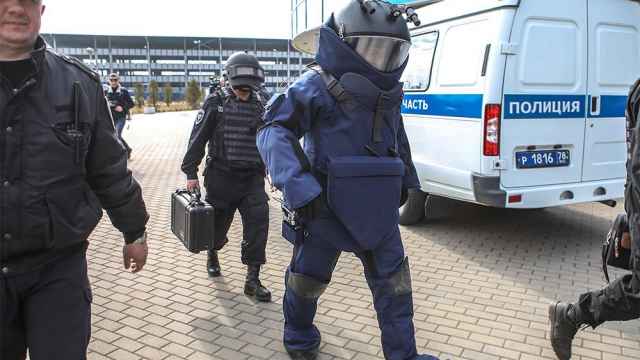Could bomb scares, no blood, all bluster, actually be more politically dangerous for the Kremlin than the real thing?
As the tally of false warnings of attacks across Russia continues to rise, the credibility of the regime and the president may find themselves on the line, facing this most low-key of threats.
It is, after all, very easy to launch this kind of campaign. It’s much more difficult — though not impossible — to unmask the perpetrators, especially when someone has the technical know-how to hide their location and IP address using internet telephony.
It could be Ukrainians acting on their own initiative, a Maidan counterpart to the hackers “with patriotic leanings” that Putin conveniently blames for every cyberattack on the West.
It could be homegrown terrorists, seeking to spread confusion or test responses before a real attack. Almost a week into the spree, it could be copycats. Frankly, it could be anyone with an internet connection.
On one level, it is no more than an annoyance, one more irritant of modern daily life, to add to spam in the inbox or traffic jams. But there is a wider significance.
First of all, it will test the resilience of the Russian people to terror challenges. Modern counter-terrorism depends on all kinds of technological solutions, from facial-recognition software to undercover infiltrators.
But maybe the most powerful tools are the familiar ones: a vigilant population willing to speak up if it sees something and a quick response to alerts and instructions from the authorities.
If the response is to become blasé, to assume that every unexplained bag left on the metro is nothing to worry about, that every alarm is just a drill, then the country becomes that much more vulnerable.
Especially given its current commitment in Syria, one unlikely to end soon — defeating Islamic State is only the first stage in winning that messy war — Russia is increasingly regarded as a jihadist target of choice. Although this is no cause for panic or paranoia, the country will likely face more, not fewer, terrorist threats.
But perhaps more strikingly, false alarms may prove more problematic for Putin than real ones. He is undoubtedly a “security president,” one whose legitimacy to a large extent rests on his perceived role as the guardian of Russia from threats foreign and domestic.
Actual attacks, with all the terrible accompanying theater of flashing blue lights, bodies being loaded into ambulances, screaming children and crying mothers, tend to generate a rally-round-the-flag boost for him.
His presidency was born in the apartment bombing blasts of 1999. Periodic incidents, including the recent St. Petersburg metro attack, have played to the sense that a strong hand was needed at the helm of government.
This current campaign, especially if it continues, may prove a rather less useful challenge.
First of all, it is beginning to make the organs of state security look incompetent. There is much they can do, from knocking on (or kicking down) the doors of the usual suspects to tracking down web searches for, say, the telephone numbers of relevant malls, schools and airports.
Putin's credibility as the man of action and the defender of Russia will not so much be damaged by this campaign, if it continues, so much as become less relevant.
But none of this guarantees a result. And even if some convenient scapegoats are swept up, if the campaign doesn’t stop the Kremlin’s credibility is at risk.
Of course, the best scapegoats are foreign ones, and already this is being mooted. It may well indeed be the case, but this is problematic.
On the one hand, this plays to a familiar narrative of Russia embattled in a hostile world, but it is also an implicit acknowledgment of vulnerability. Blaming Kiev will be tempting, but would the Kremlin really want to admit that the Ukrainians can make Moscow stop trains and empty offices with a phone call?
The other classic temptation is simply to lie, and again there have already been cases where local authorities have sought to present the evacuations as nothing more than drills.
More generally, state media is downplaying the whole campaign, waiting for an authoritative steer from above. Yet for the hundreds of thousands of people directly and indirectly affected, and for the friends, families and workmates they will regale with their experiences, this is real.
Managing perceptions through the media works when the audience has no lived experiences against which to check the official line. Tell Russians that no Syrian civilians were killed in airstrikes and they have little basis to push back. Pretend that there is not a national campaign of what presidential spokesperson Dmitry Peskov belatedly called “telephone terrorism,” and they will soon wonder what is going on.
Of course, this will not bring down Putin, or on its own put any serious dent into his approval ratings. But it does represent precisely the kind of diffuse, low-key and systemic challenge which he is least able to handle.
His credibility as the man of action and the defender of Russia will not so much be damaged by this campaign, if it continues, so much as become less relevant.
What value does a war leader have, who can’t stop irritations and inconveniences, things that are rather closer to the experiences of ordinary Russians?
Such regimes end not so much with a bang, but a grumble.
Mark Galeotti is a senior researcher at the Institute of International Relations Prague and coordinator of its Center for European Security.
The views and opinions expressed in opinion pieces do not necessarily reflect the position of The Moscow Times.
A Message from The Moscow Times:
Dear readers,
We are facing unprecedented challenges. Russia's Prosecutor General's Office has designated The Moscow Times as an "undesirable" organization, criminalizing our work and putting our staff at risk of prosecution. This follows our earlier unjust labeling as a "foreign agent."
These actions are direct attempts to silence independent journalism in Russia. The authorities claim our work "discredits the decisions of the Russian leadership." We see things differently: we strive to provide accurate, unbiased reporting on Russia.
We, the journalists of The Moscow Times, refuse to be silenced. But to continue our work, we need your help.
Your support, no matter how small, makes a world of difference. If you can, please support us monthly starting from just $2. It's quick to set up, and every contribution makes a significant impact.
By supporting The Moscow Times, you're defending open, independent journalism in the face of repression. Thank you for standing with us.
Remind me later.








